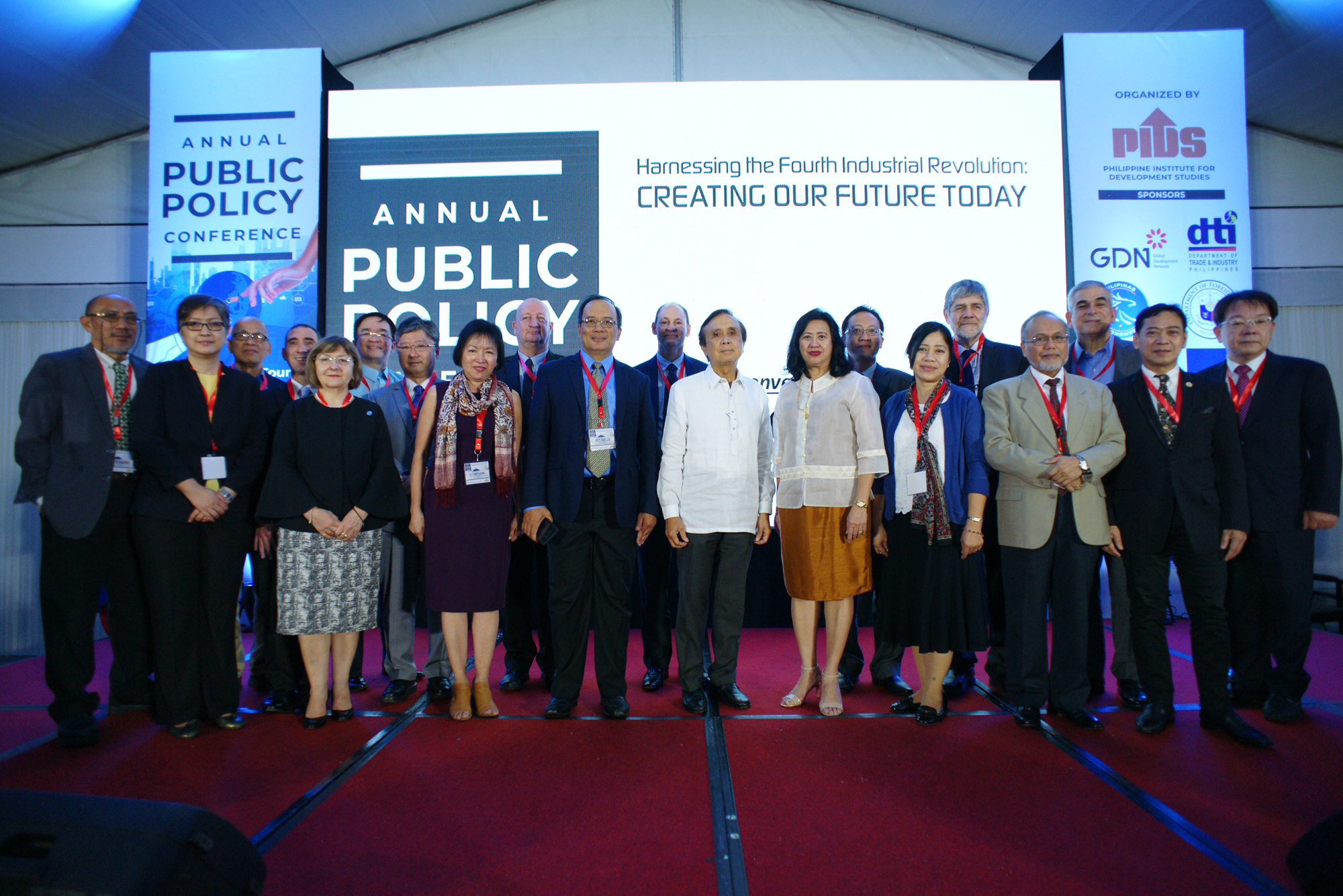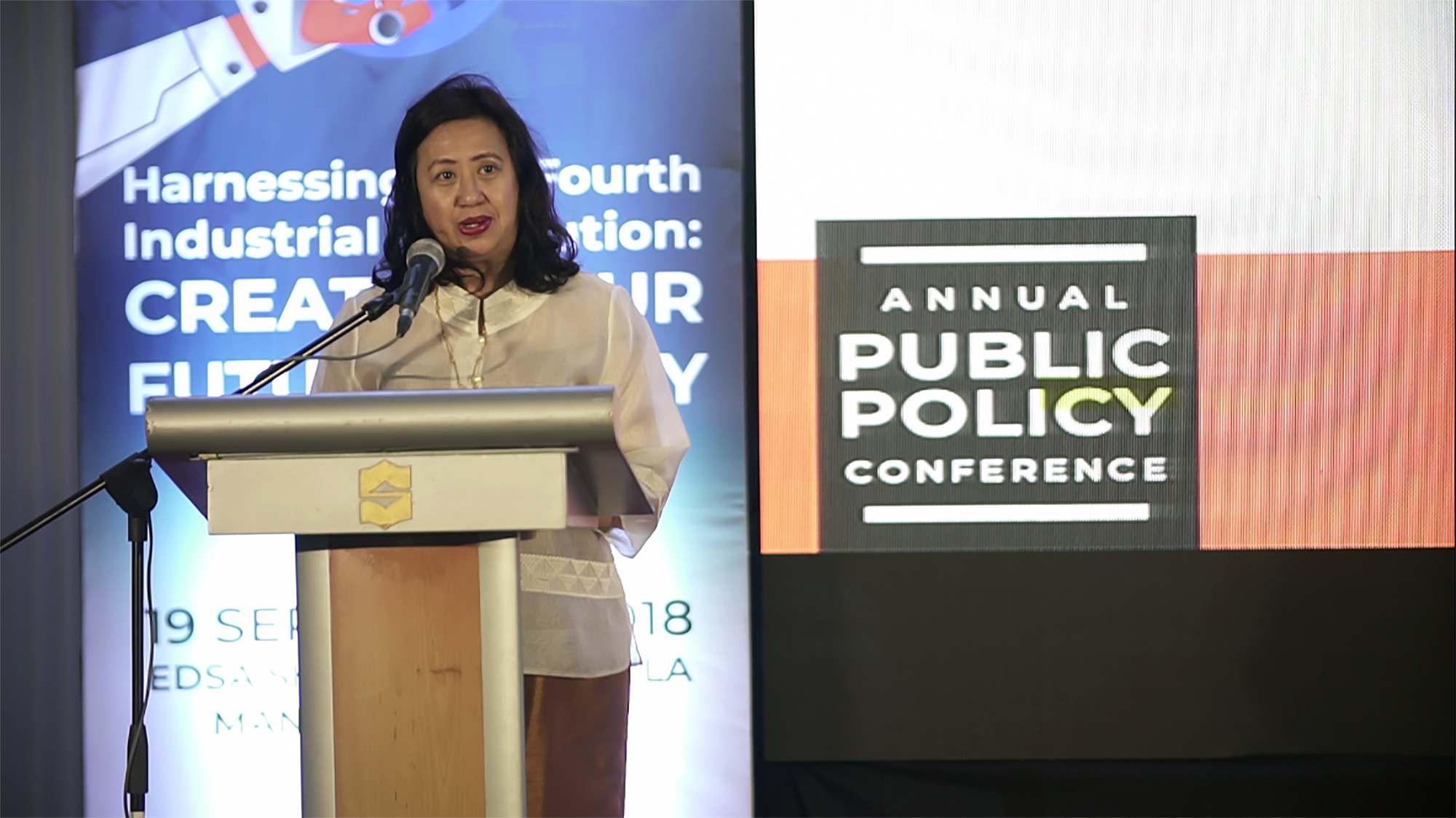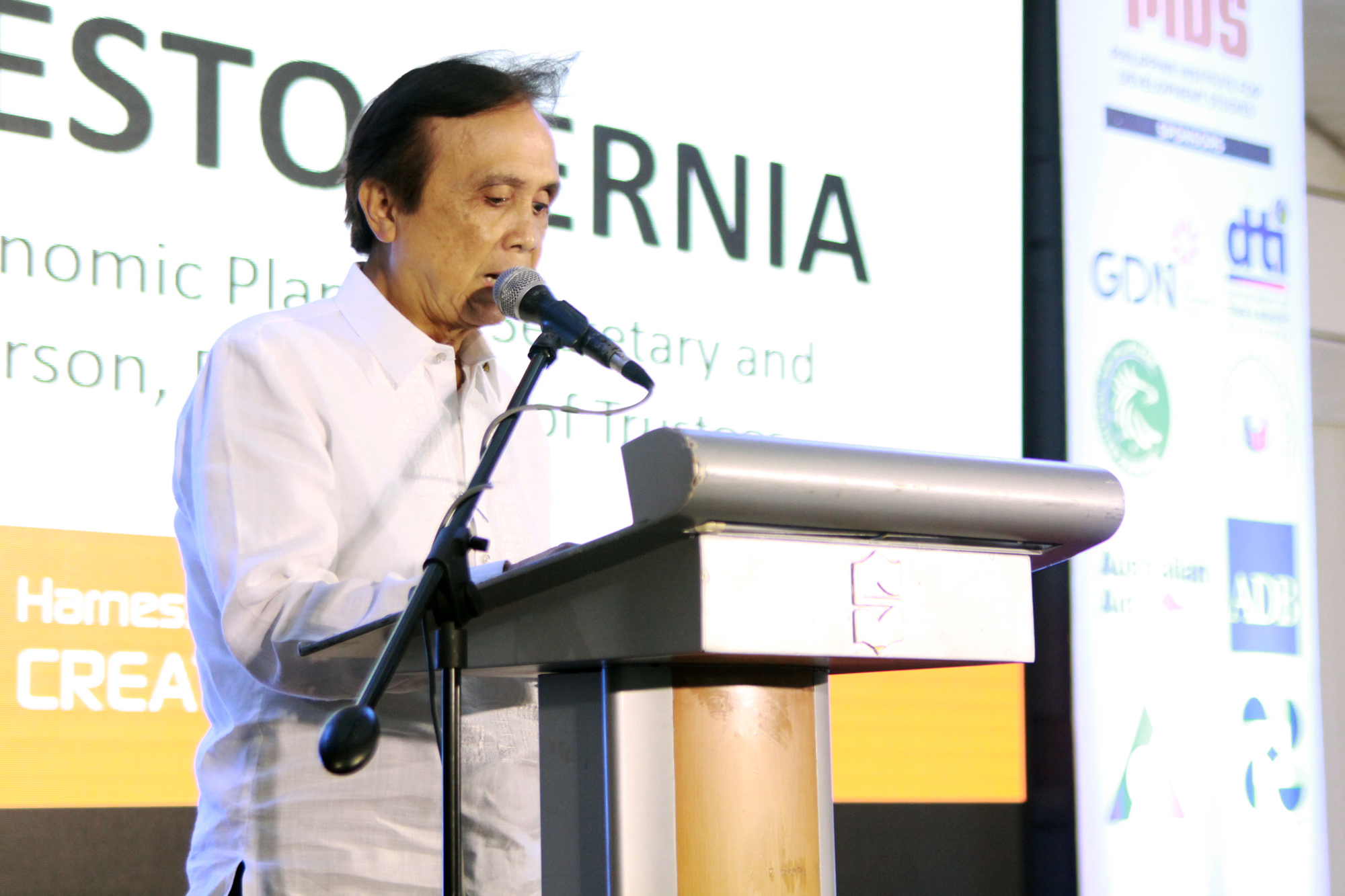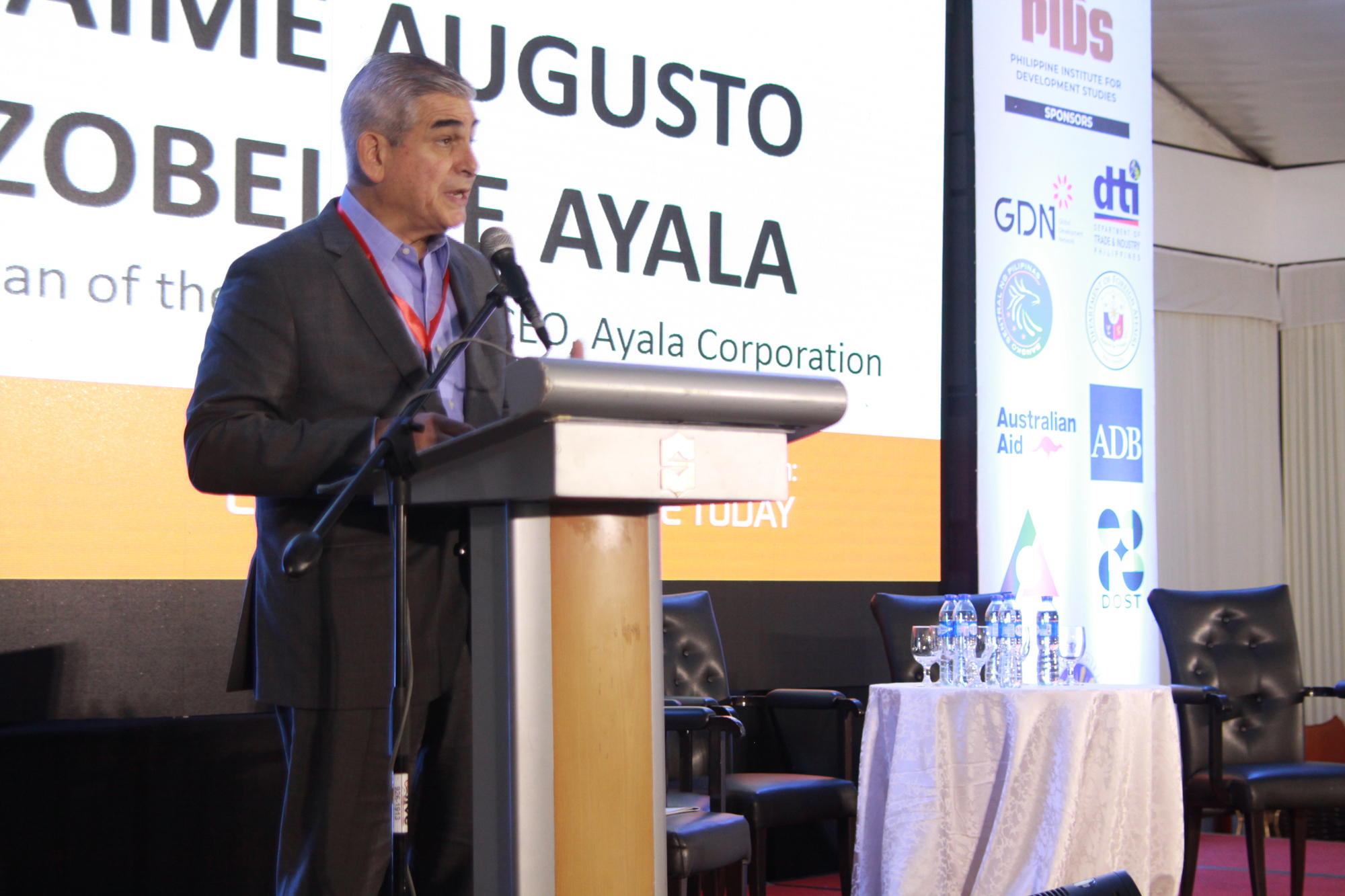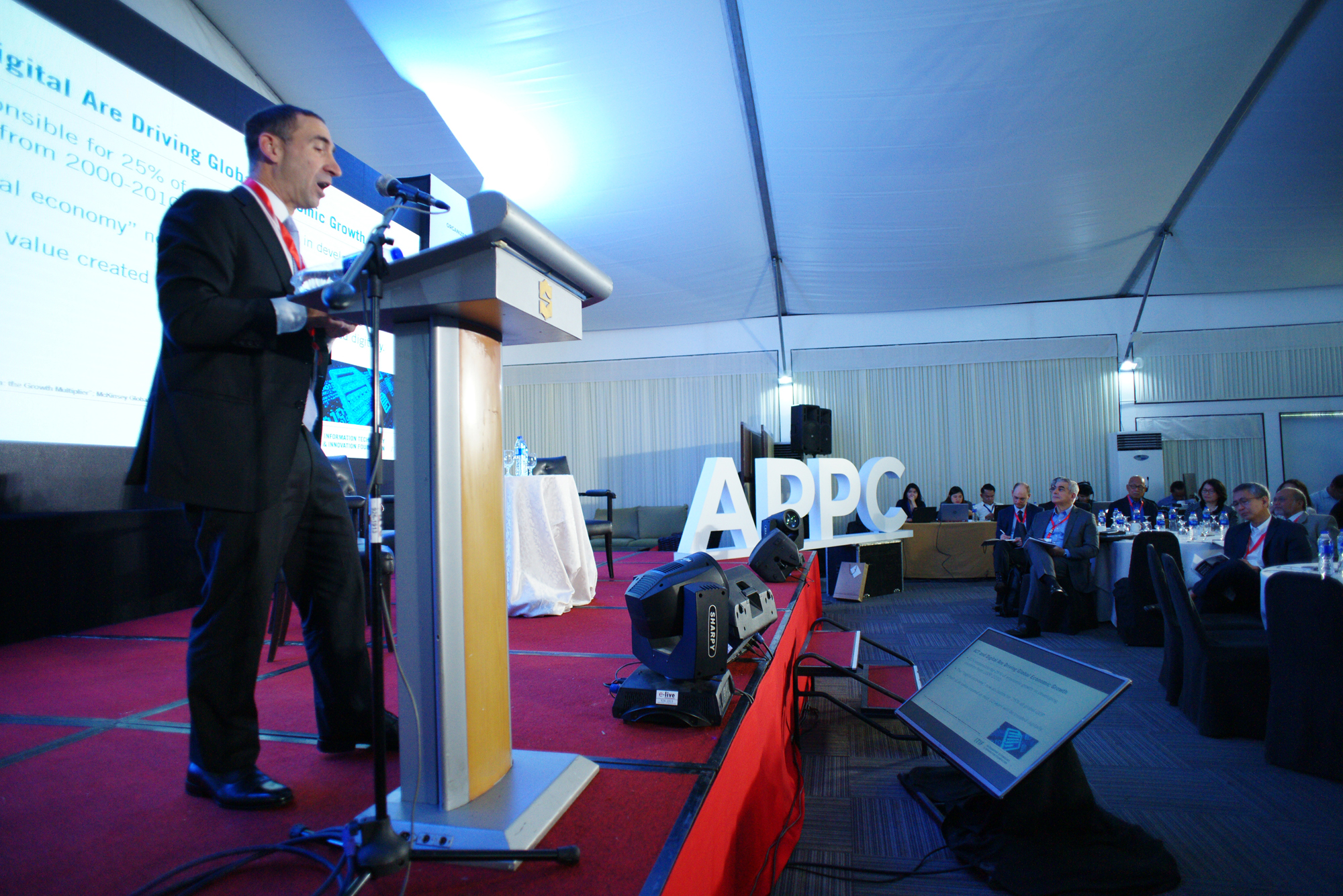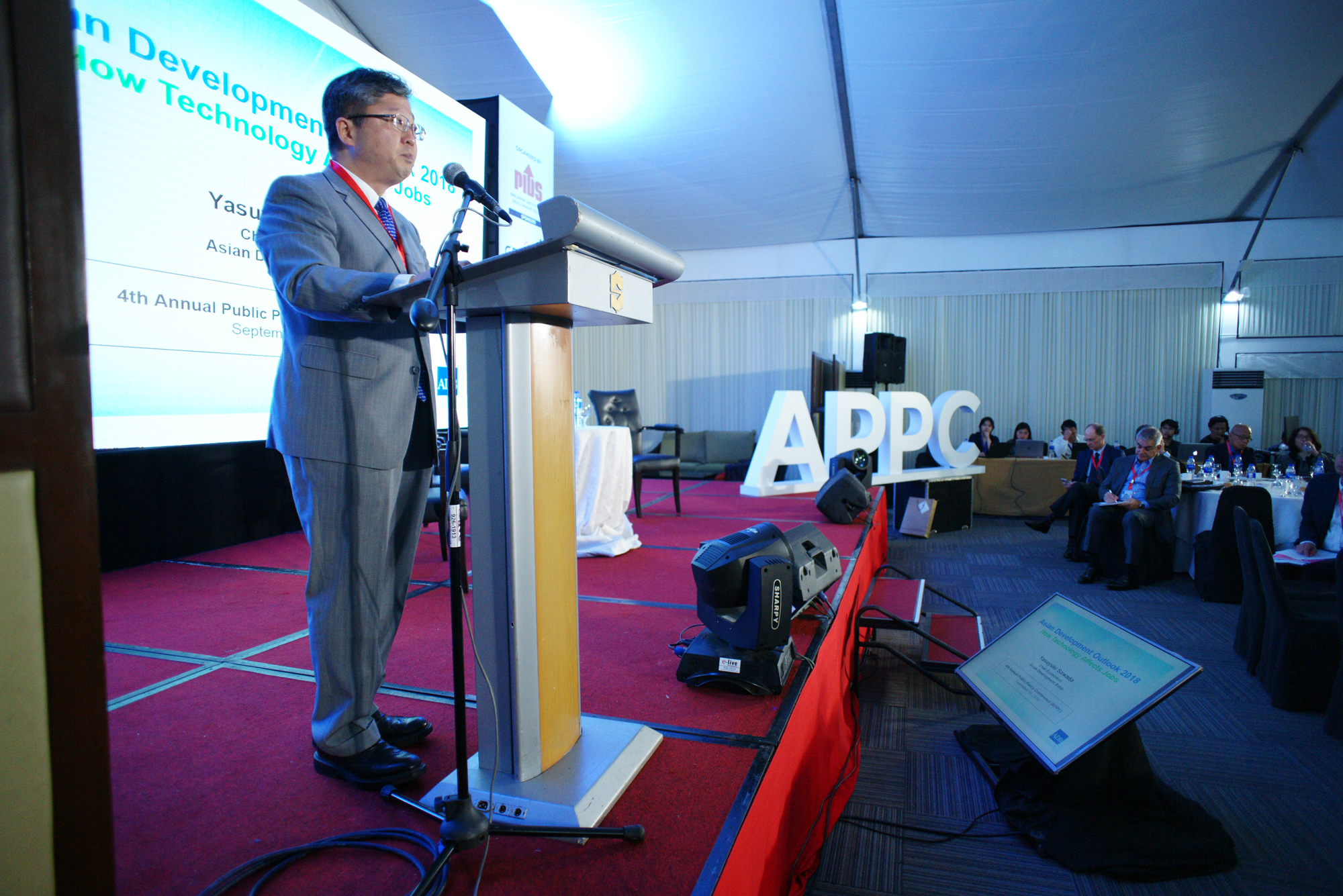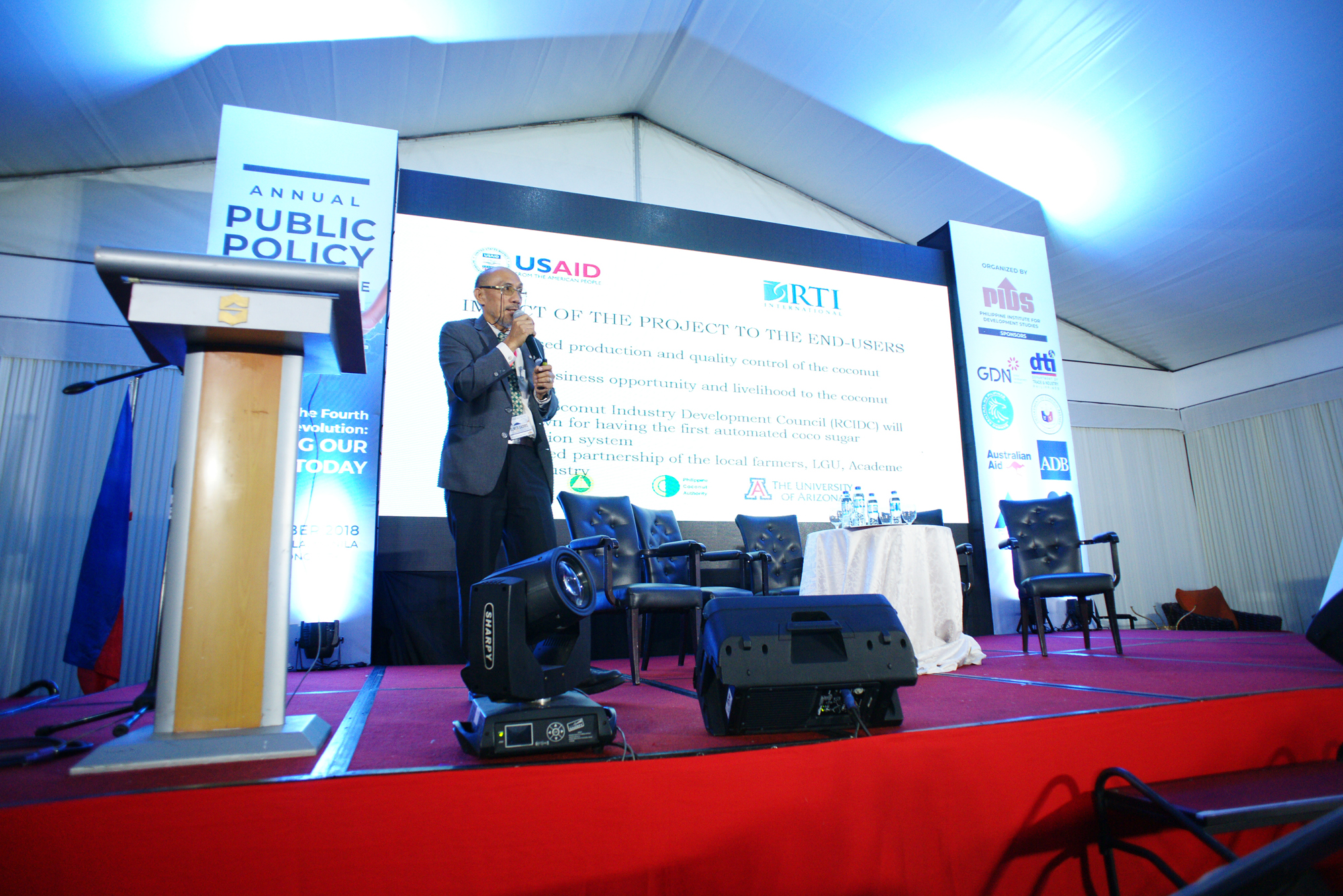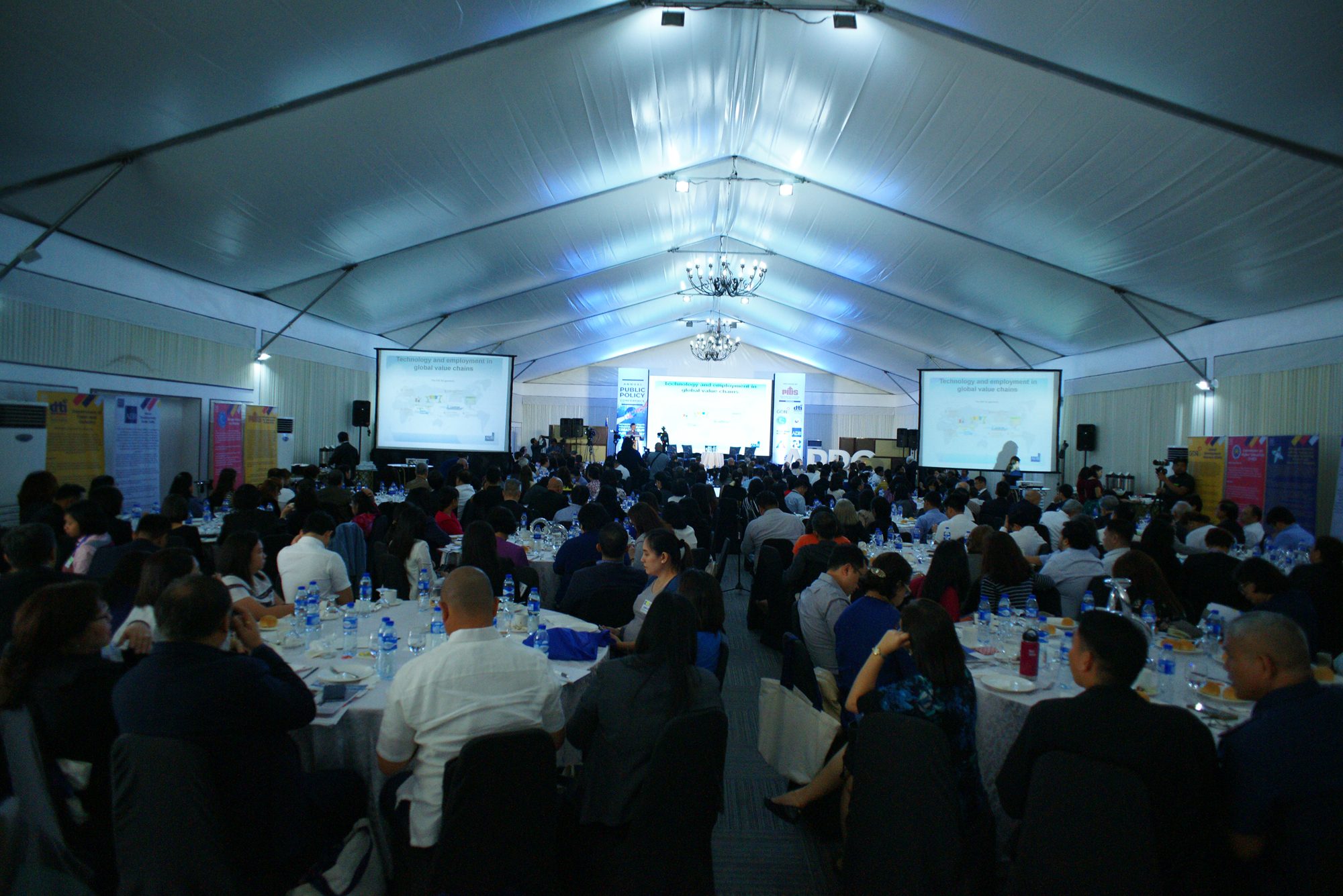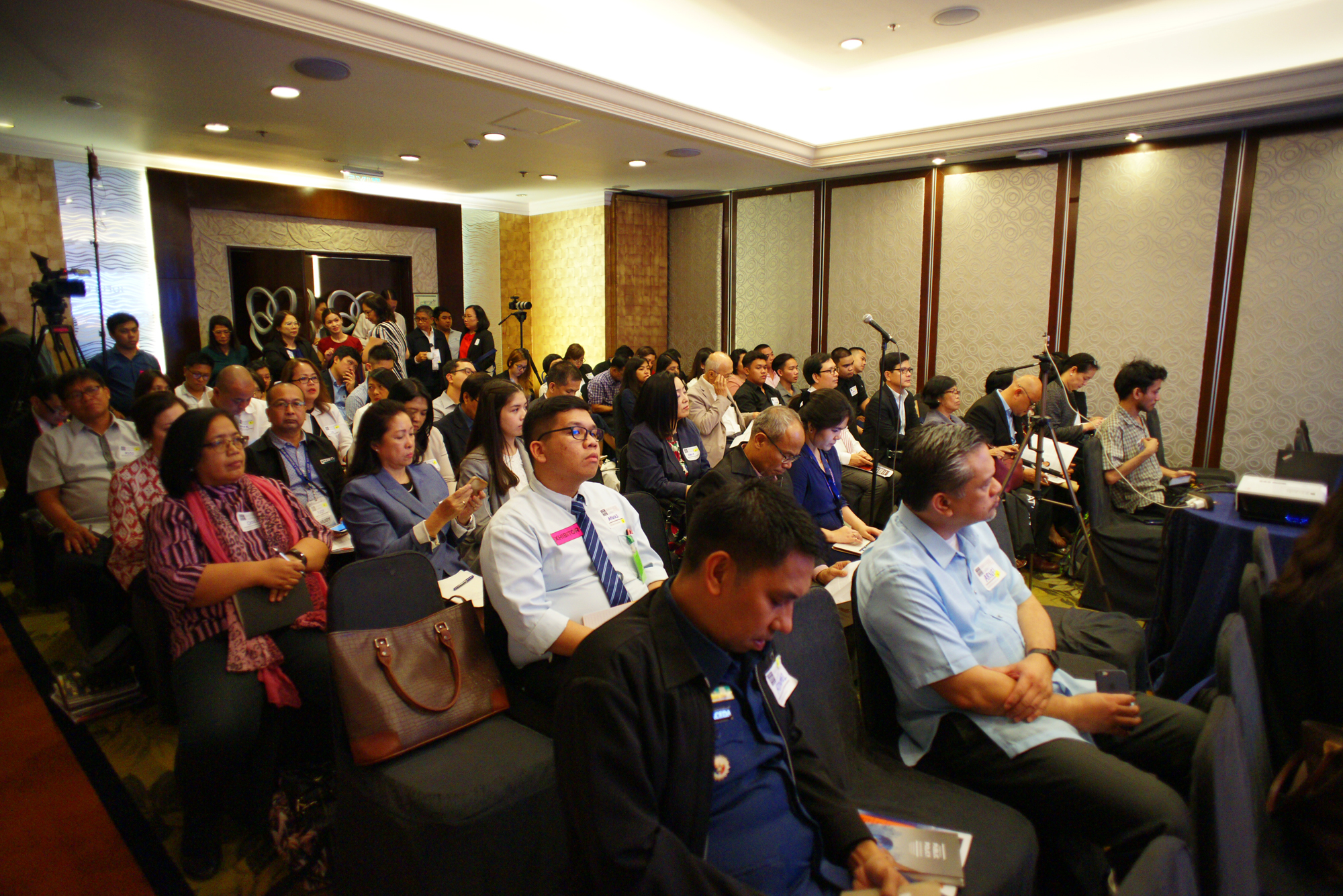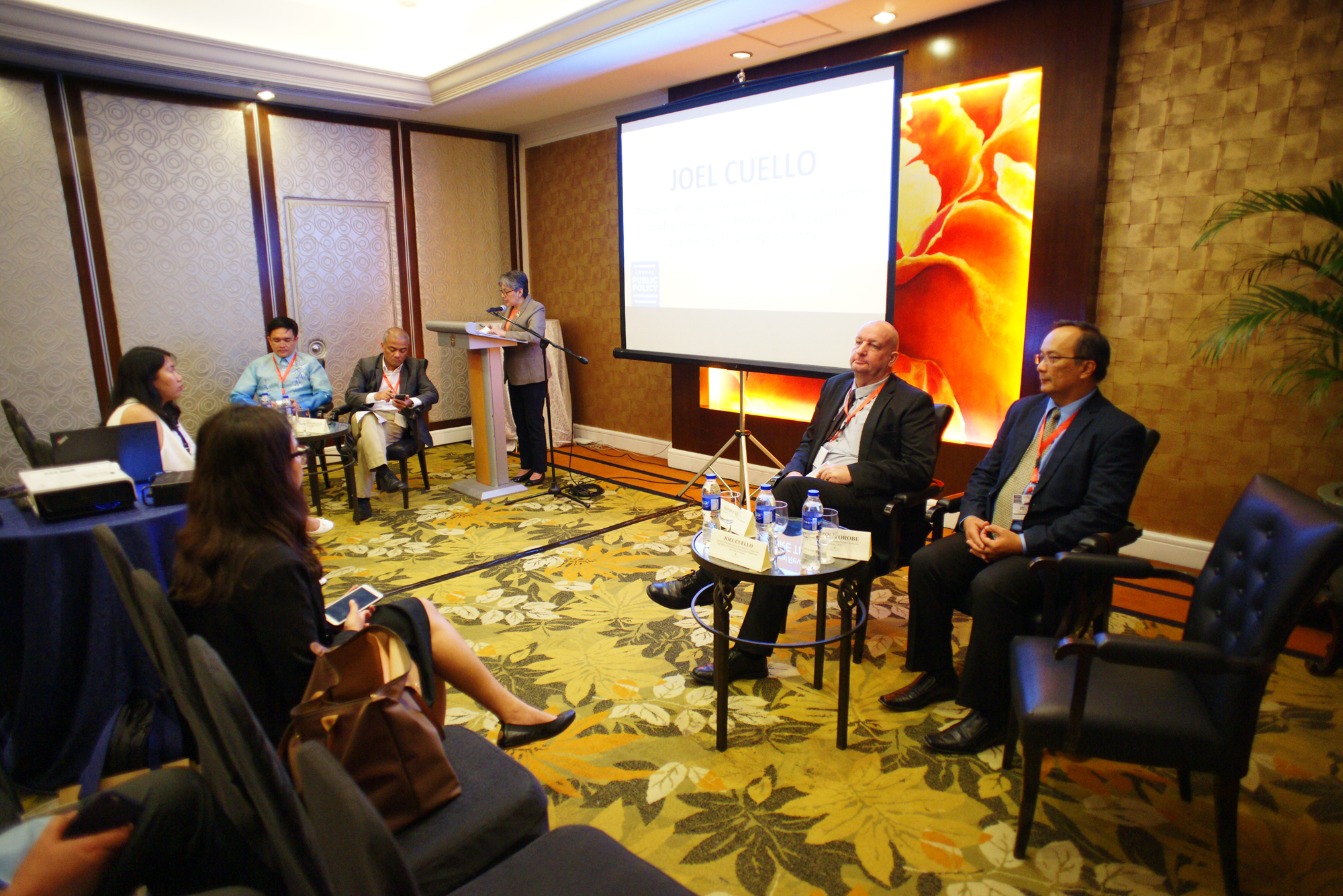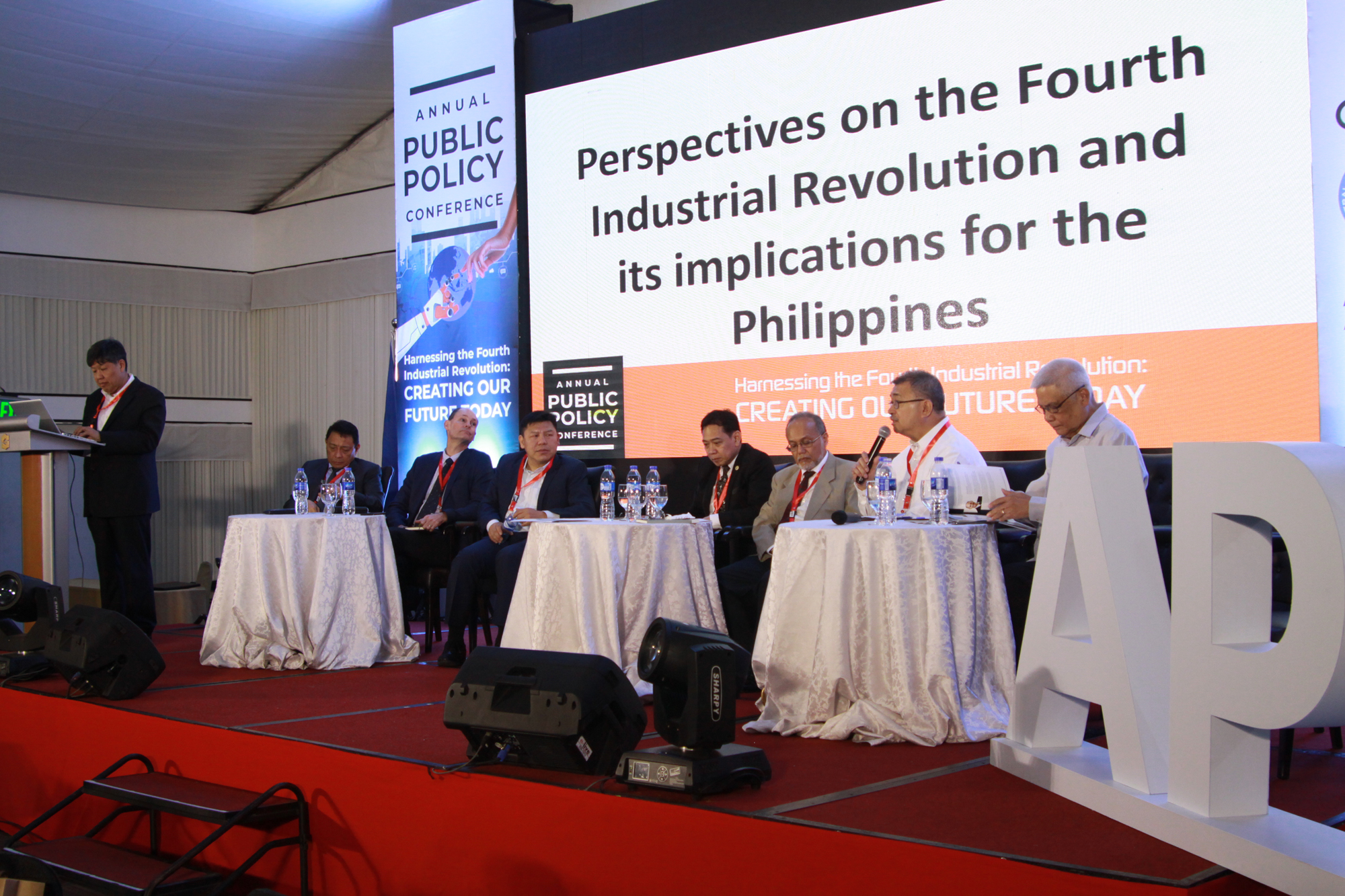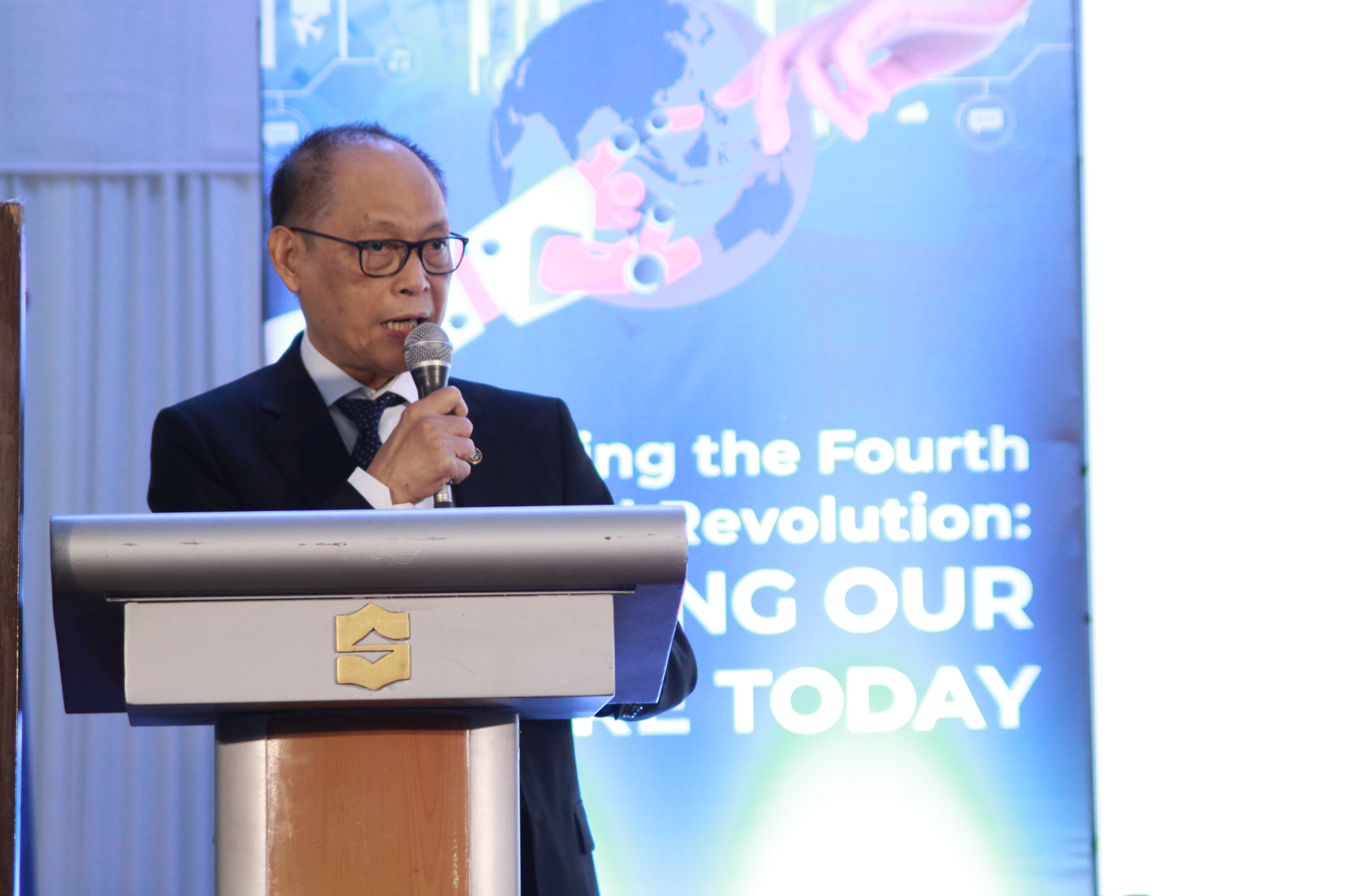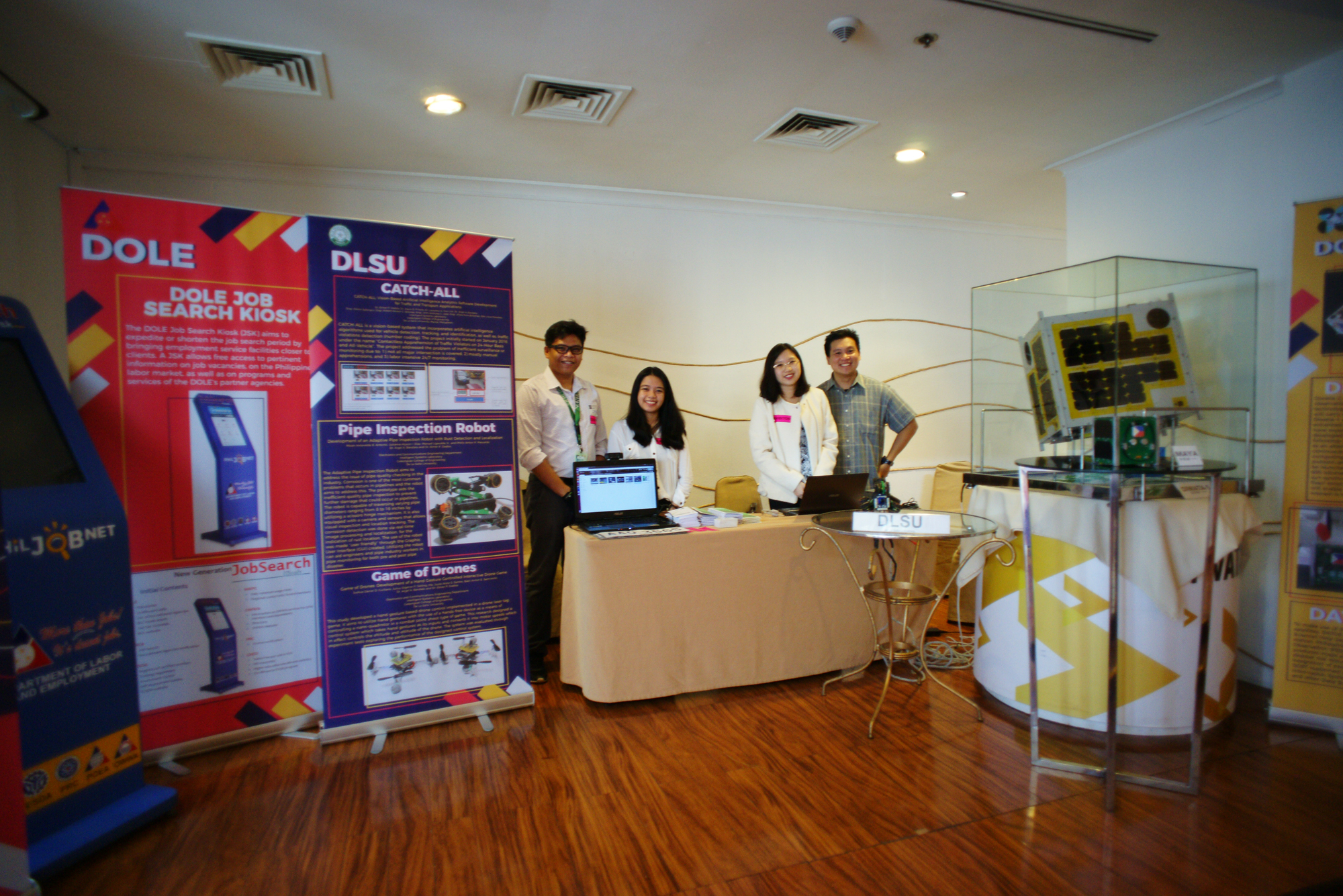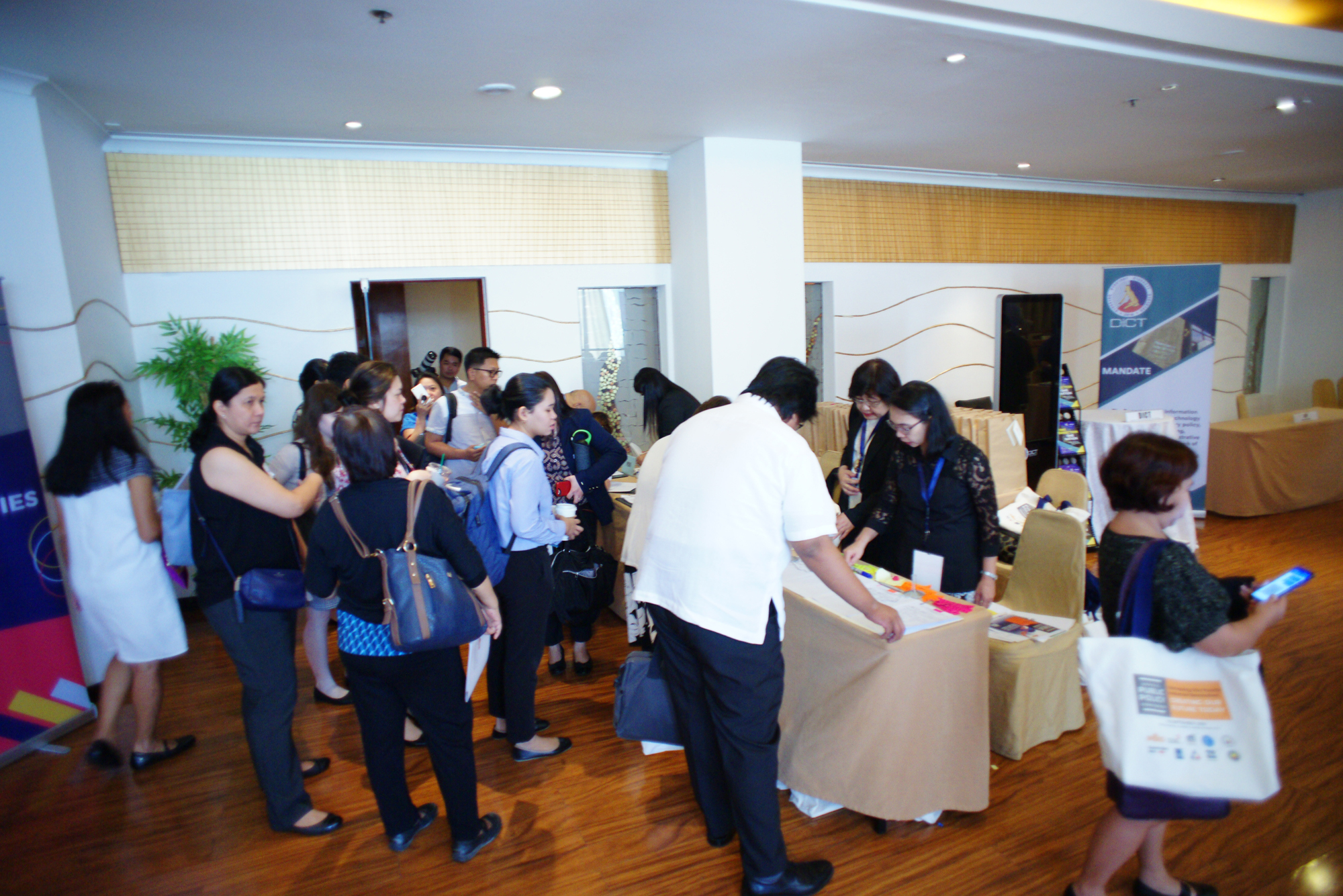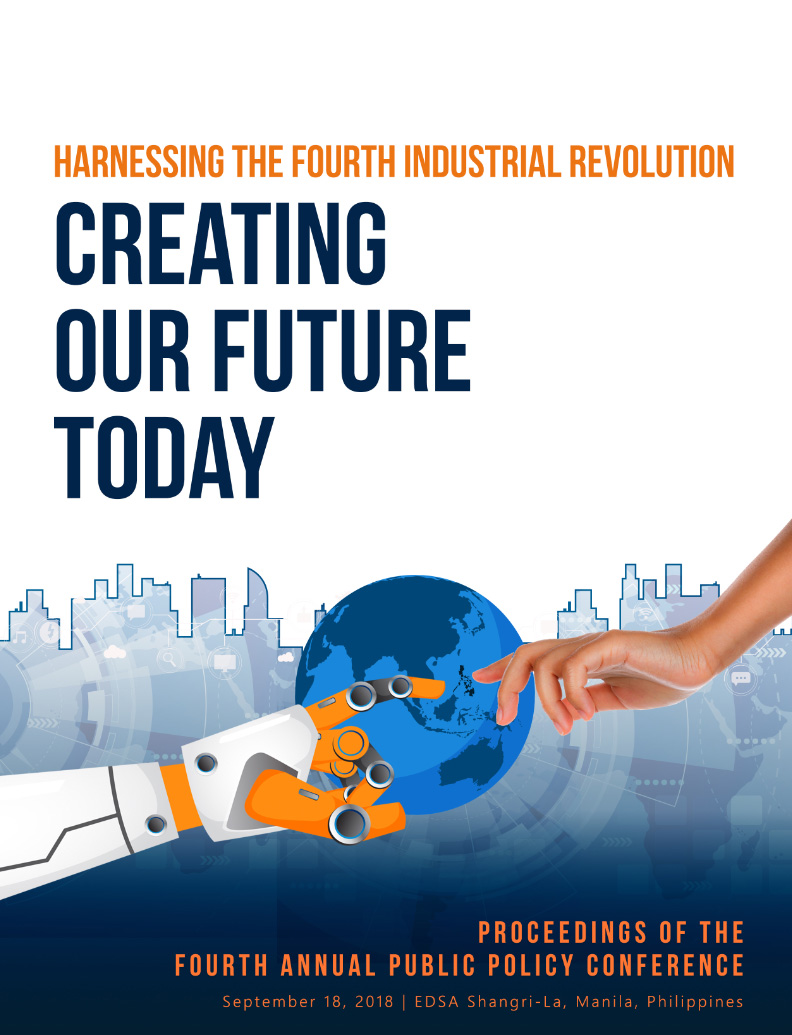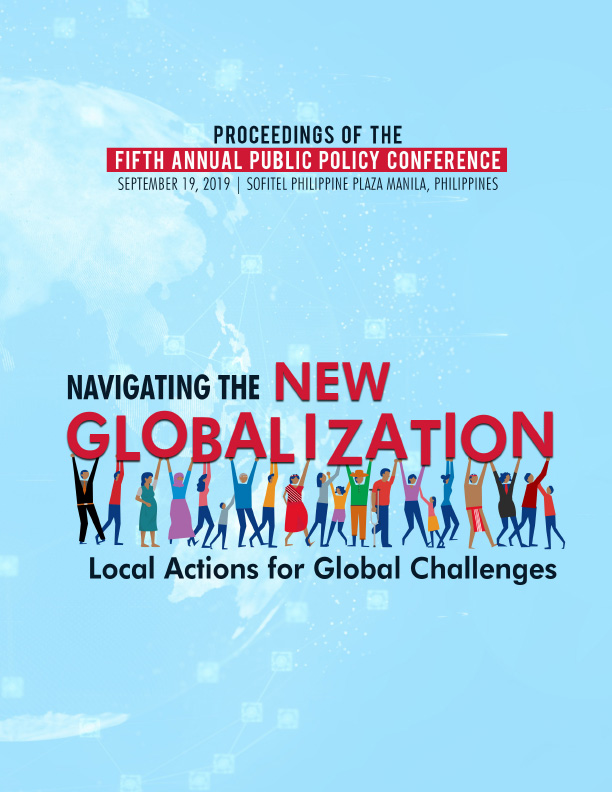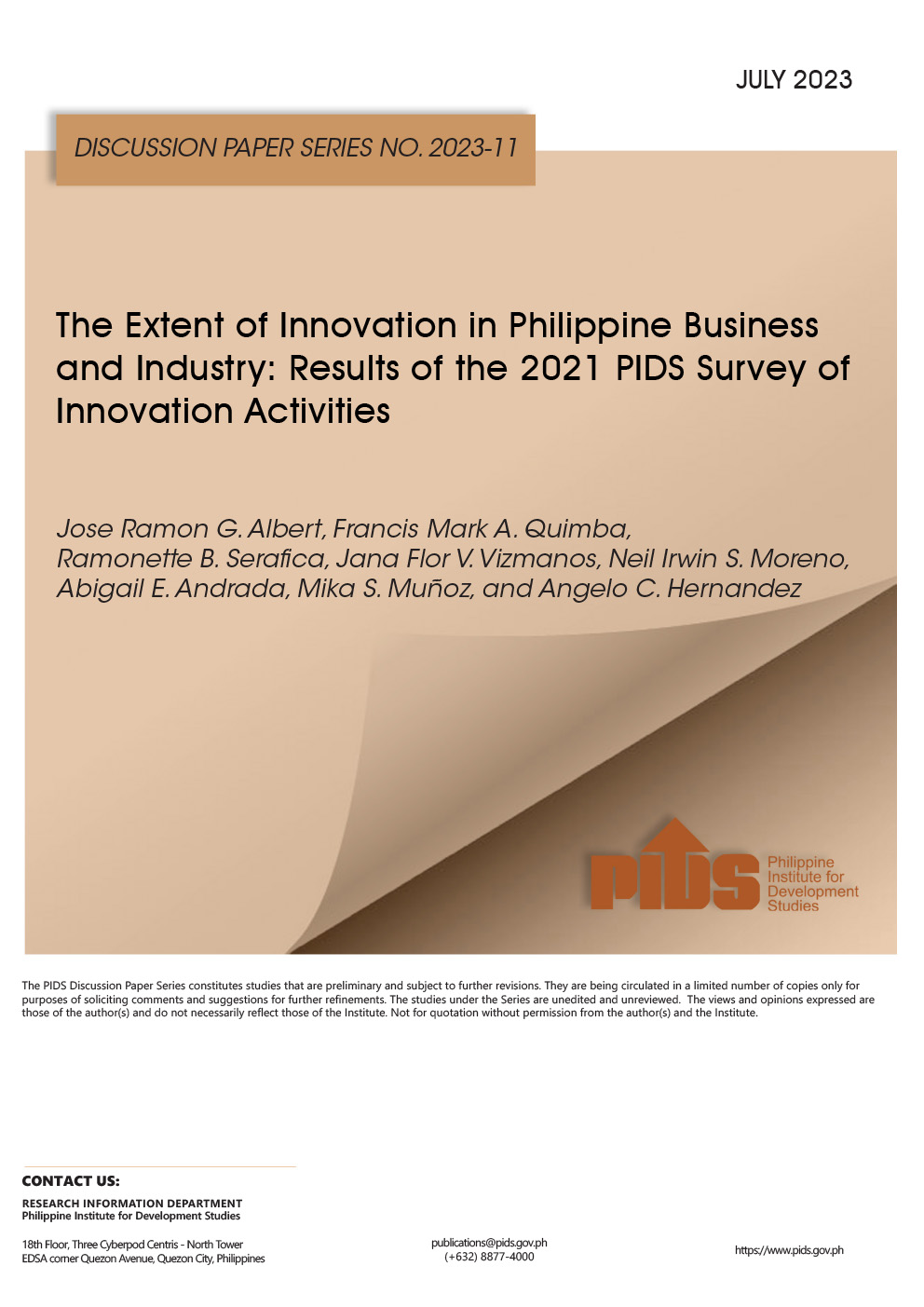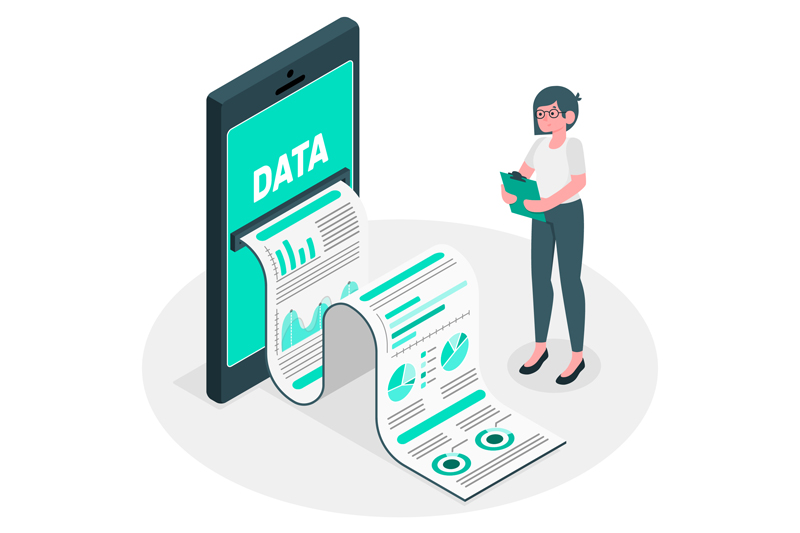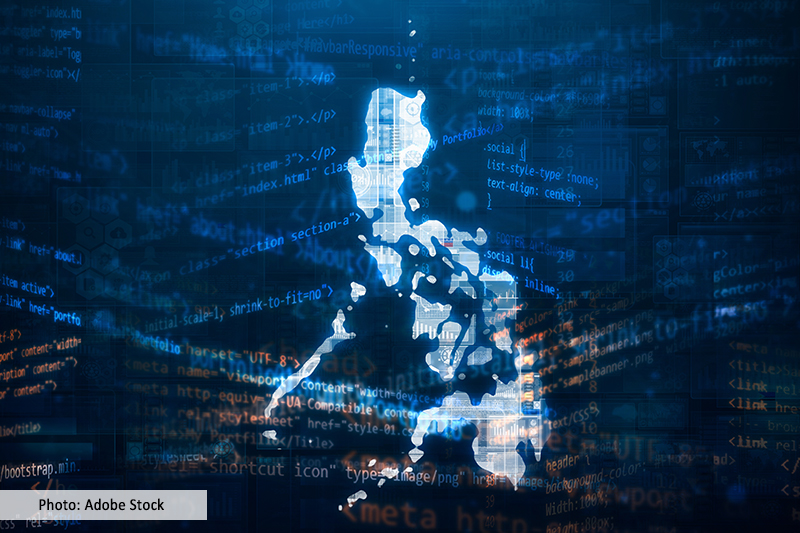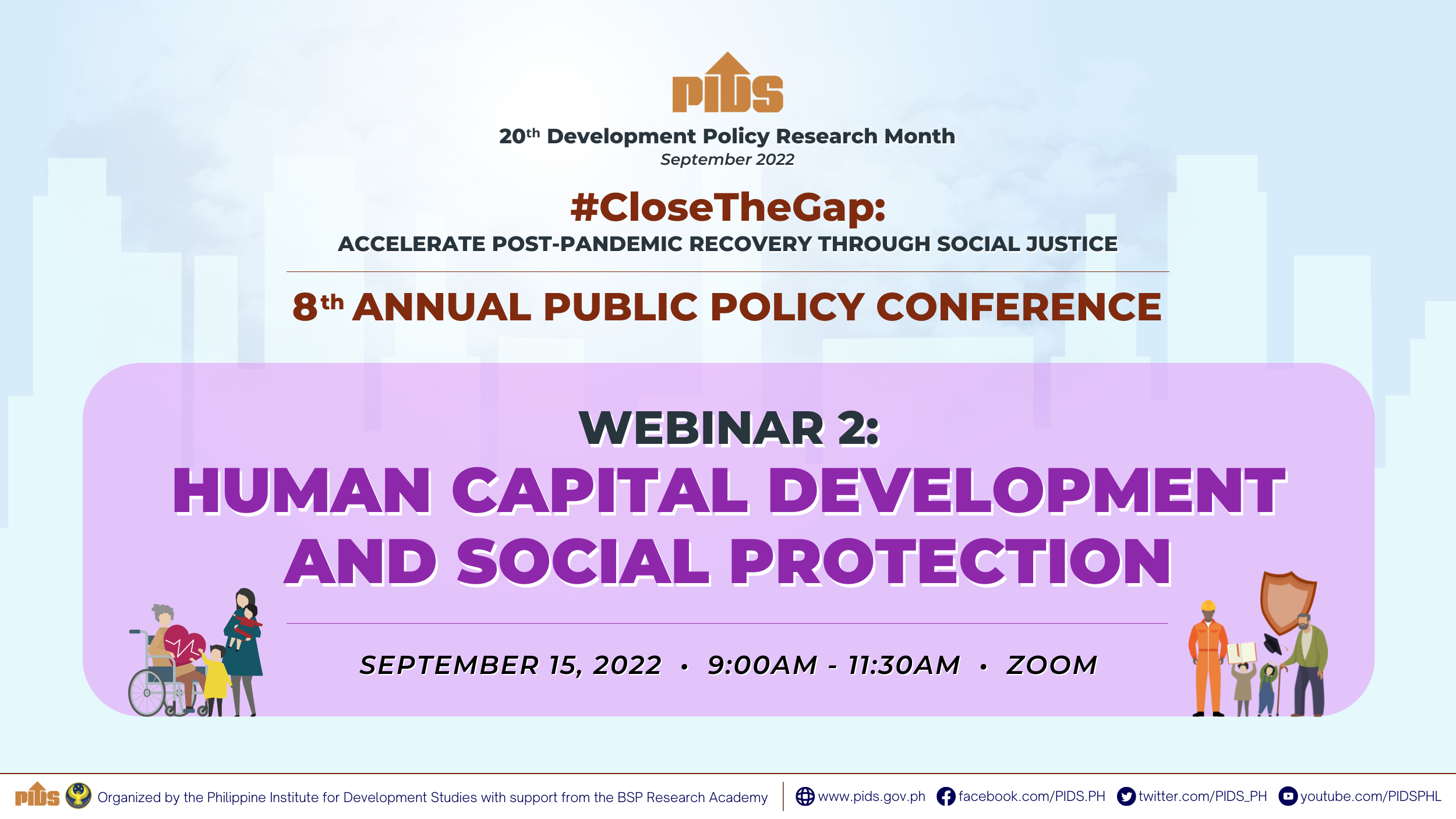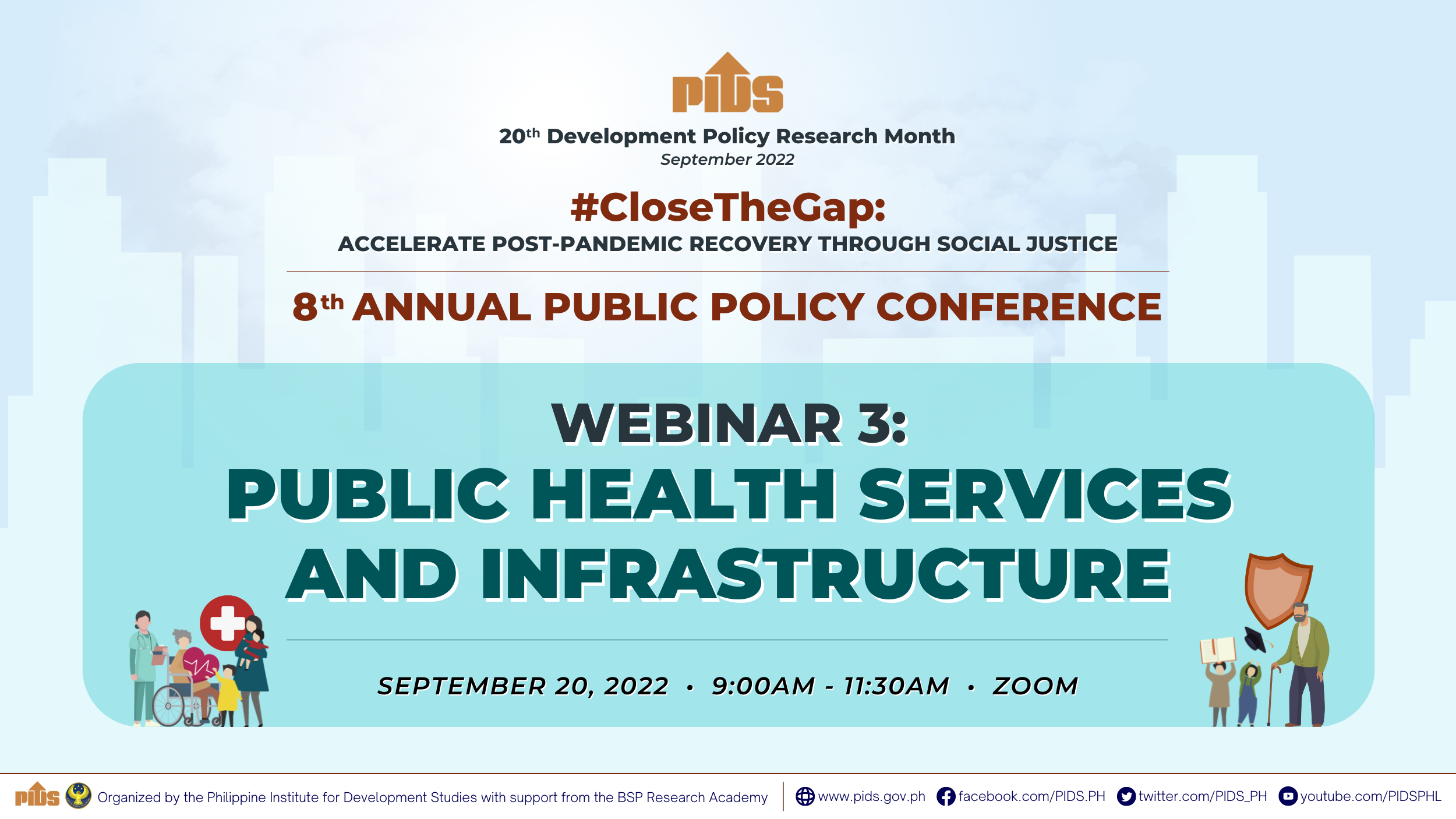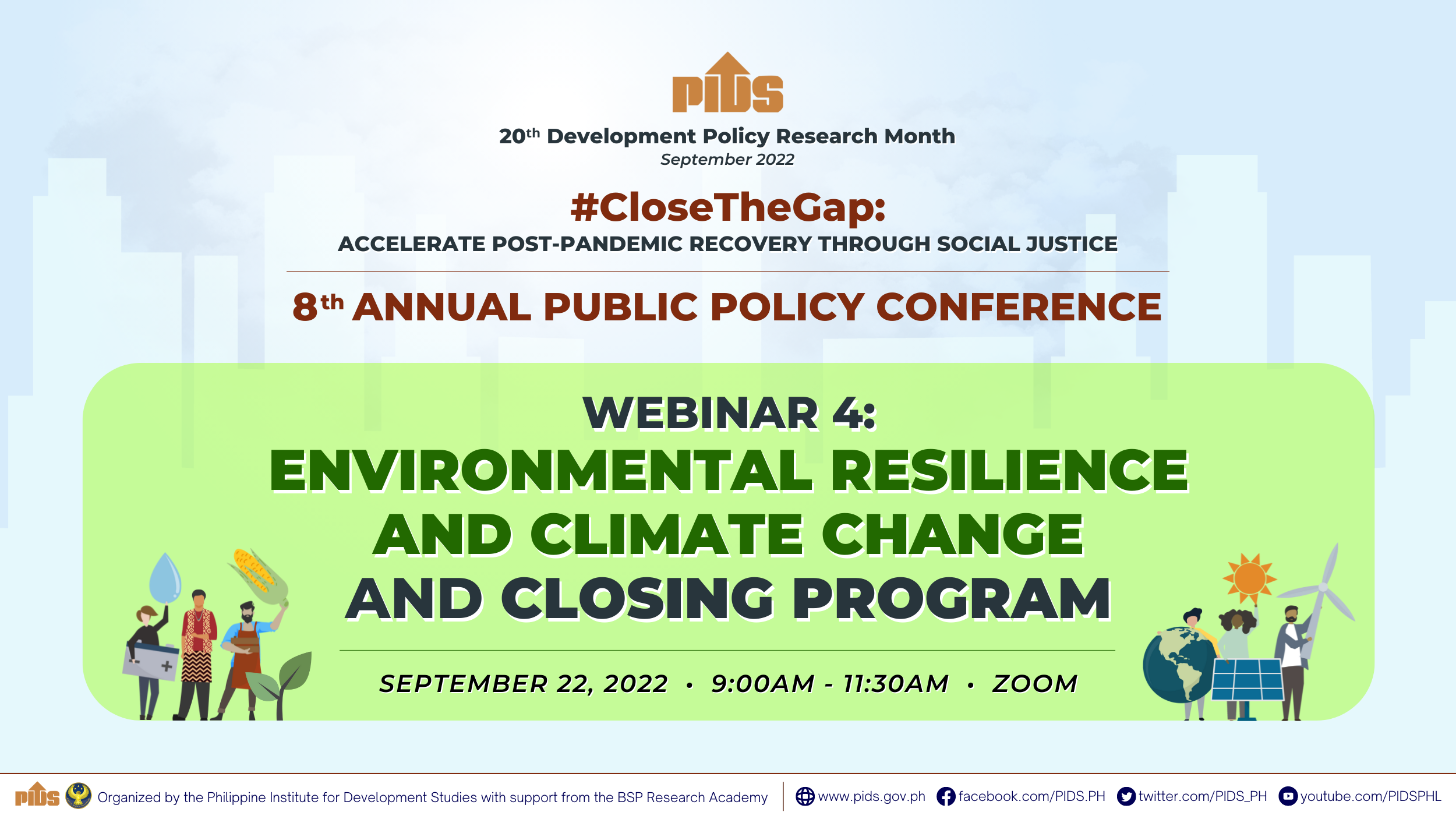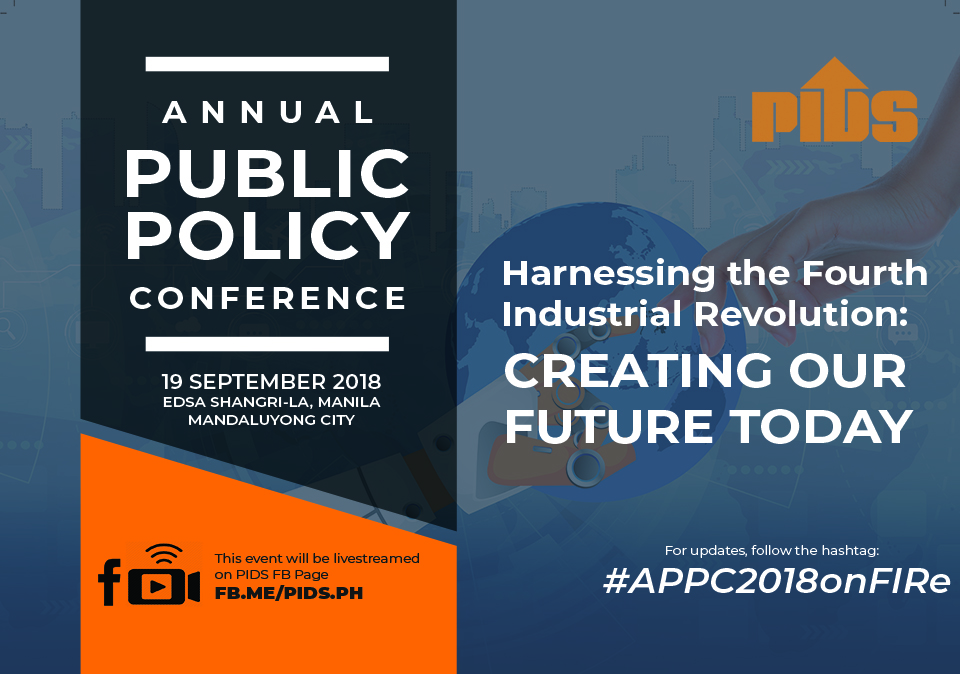
Technological breakthroughs, such as advanced robotics, artificial intelligence, internet of things, 3D printing, blockchain, and big data analytics, have ushered in the Fourth Industrial Revolution (FIRe). These technologies are expected to alter the patterns of production, consumption, and employment, creating both opportunities and risks. What are the implications of FIRe for Philippine development policy and strategy? How should the country re-position its economic and labor regulatory environment in the face of this revolution and its implications? What steps must be undertaken to develop the skills and competencies required for the future labor market? How can the ecosystem for science, technology, and innovation be strengthened and be made more effective? A systematic analysis of these questions is critical to ensure that the country's economic take-off is sustained in the long run and leads to even faster and more inclusive growth.
This year’s Annual Public Policy Conference (APPC) will tackle these issues and the opportunities facing the Philippines as it embraces the FIRe. It will bring together experts, academics, policymakers, and private sector and civil society representatives in a multidisciplinary conversation on how the Philippines can harness the opportunities and manage the risks emerging from this fourth major industrial era.
To view the conference poster in high resolution, .
DOWNLOAD PRESENTATIONS:
MORNING PLENARY SESSION
by Stephen Ezell, Vice President, Global Innovation Policy, The Information Technology and Innovation Foundation (ITIF)
by Yasuyuki Sawada, Chief Economist, Asian Development Bank
PARALLEL SESSIONS
SESSION A: Agriculture, manufacturing, and services
by Rafaelita Aldaba, Assistant Secretary, DTI
by Mia Mikic, Director, Trade, Investment, and Innovation Division, United Nations Economic and Social Commission for Asia and the Pacific (UNESCAP)
by Eufemio Rasco Jr., Chair, Agricultural Sciences Division, National Academy of Science and Technology (NAST)
by Shin-Horng Chen, Director and Research Fellow, International Division, Chung-Hua Institution for Economic Research
by Stephen Ezell
SESSION B: Science, technology, and innovation
by Joel Cuello, President, Philippine-American Academy of Science and Engineering (PAASE), and Professor of Biosystems Engineering, University of Arizona
by David Hall, Senior Technical Advisor, Economic Development, RTI International
by Joel Joseph Marciano, Jr., Director, DOST-Advanced Science and Technology Institute (ASTI)
by Jose Ramon Albert , Senior Research Fellow, Philippine Institute for Development Studies (188体育)
SESSION C: Labor market and social protection
by Markus Ruck, Senior Specialist on Social Protection for the Philippines and South-East Asia, International Labour Organization (ILO)
by Emmanuel Esguerra, Professor, School of Economics, University of the Philippines
by Kostas Mavromaras, Director, Future of Employment and Skills Research Centre, University of Adelaide
SESSION D: Human Capital Development
by Michael Fung, Director, Training Partners Group, and Chief HR Officer and Chief Data Officer, SkillsFuture Singapore
by Elizabeth King, Non-resident Senior Fellow, Brookings Institution, and Commissioner, International Initiative for Impact Evaluation (3ie)
by Arnulfo Azcarraga, College of Computer Studies - Software Technology, De La Salle University
by Ma. Victoria Bernido, Directress, Central Visayan Institute Foundation Inc. (CVIF) and 2010 Ramon Magsaysay Awardee

